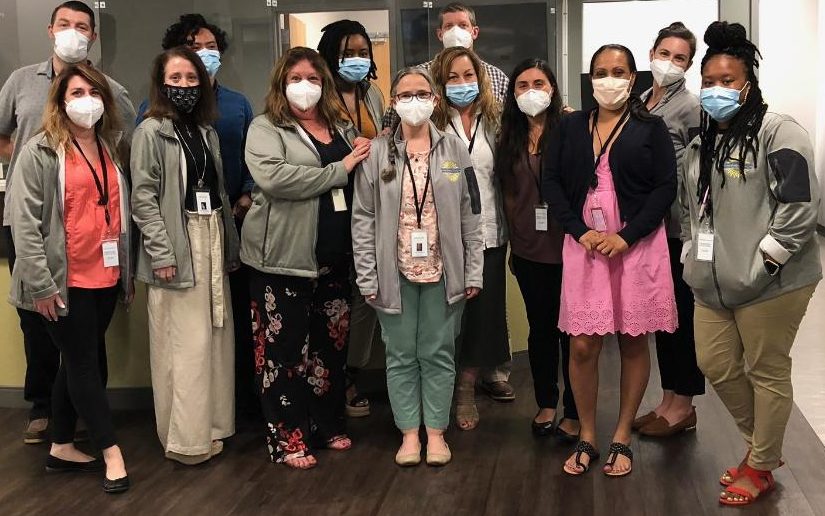Suffolk County Executive Steve Bellone had a message during a recent news briefing for residents feeling overwhelmed by substance use, mental illness, and/or other life stressors.
DASH, the New York Metro area’s first crisis stabilization center, is there to ensure that anyone in need of addiction treatment has immediate access 24 hours a day, seven days a week. The $4.7 million New York State-funded Diagnostic, Assessment and Stabilization Hub in Hauppauge will provide assessment and referral services at any time — including counseling and medication-assisted-treatment for opioid withdrawal. This saves unnecessary hospitalization and emergency department visits, provides jail diversion services, and manages treatment of coexisting mental health and substance use disorders.
“Long Island’s first Diagnostic, Assessment, and Stabilization Hub will address critical gaps in care, providing life-saving services for our residents,” said Bellone.
The program features a mobile response team of licensed professionals who come to you, will develop a safety plan, and if necessary, recommend outpatient services or a higher level of care.
With schools closed, DASH has not gotten its usual referrals from school officials for adolescents experiencing worrisome symptoms. The center’s staff worries that parents may not recognize signs of potentially serious issues in their children while at home.
“We worry about students expressing depression or suicidal thoughts,” said Karen Boorshtein, president of the Huntington-based Family Service League, a nonprofit that operates DASH. “There’s been a huge reduction in calls for adolescents. They may be hurting and not letting their parents know, they may be involved with drugs and alcohol too.”
Since DASH opened in March 2019, more than 5,400 children and adults have been assessed, treated, or provided with support, according to Boorshtein. The DASH hotline (631-952-3333) has received more than 20,000 calls from those in distress. Its Mobile Crisis Team delivered much-needed crisis care to more than 1,200 individuals by responding to locations throughout the community such as schools, businesses, and private residences.
Police precincts, criminal courts, and hospitals are other agencies that refer DASH services.
“It’s better than referring them to the emergency room,” Boorshtein said. “We’ve taken some of the burden off of the hospitals.”
Due to the coronavirus pandemic, DASH has been offering a lot more services through telehealth healthcare-assessment technologies and phone sessions. “If they can be screened and assessed remotely, we’ll do that.”
“We’ve seen a bit of a drop-off” in calls for service, Boorshtein said. “Short of an acute emergency, people may say, ‘I can handle it.’ People can go into denial, too, saying ‘I’m fine, don’t worry about me.’ But it’s starting to pick up again… People are starting to feel a little safer to venture out.”
Boorshtein recalled an anecdote about a father who tried to bring his 20-year-old son to the DASH center several times. The son had a history of substance abuse and mental illness, was anxious, his life was deteriorating, he was not taking care of himself, he had a bad experience at an emergency room, and he refused to come inside from the center’s parking lot.
“DASH is a voluntary program,” Boorshtein said. “Our team kept trying to engage him in the parking lot. His father was pleading with us to help him. Staff kept going out to engage him, three or four times. Finally, the young man felt like ‘they’re ok’ and agreed to come inside for an assessment.
Before someone leaves DASH, staff will make sure that person has a follow-up appointment with an appropriate care provider.
“We make sure there’s a connection made,” Boorshtein said. “The compliance rate is far greater when they have an appointment. We call the next day and say, ‘Did you go to your appointment?’ If not, we’ll ask them to come back in.”
The DASH facility is a collaborative project between the New York State Office of Mental Health and the New York State Office of Addiction Services and Supports. The DASH Team includes nurse practitioners in psychiatry who can write prescriptions, registered nurses, social workers, credentialed alcoholism and substance abuse counselors, and peer specialists. DASH also works with individuals experiencing suicidal thoughts, depression, anxiety, erratic behavior, interpersonal conflicts, and workplace or school trauma.
“Such issues are often debilitating, challenging, and shouldn’t be faced alone,” Boorshtein said, noting that DASH accepts most private insurances, Medicare, Medicaid, and also offers a sliding scale for costs. “DASH provides immediate help.”
DASH is located at 90 Adams Ave. in Hauppauge. It can be reached at 631-952-3333.


























